This is inspired by a bunch of outstanding similar articles — about names, art and time.
Each of the statements below is not true. Or at least not 100% true, all the time, for all students, for all teachers. I've tried to find counterexamples or research to disprove each and every one of them.
Notice how the truth in teaching is always murky shades of grey? Yup. Teaching is hard.
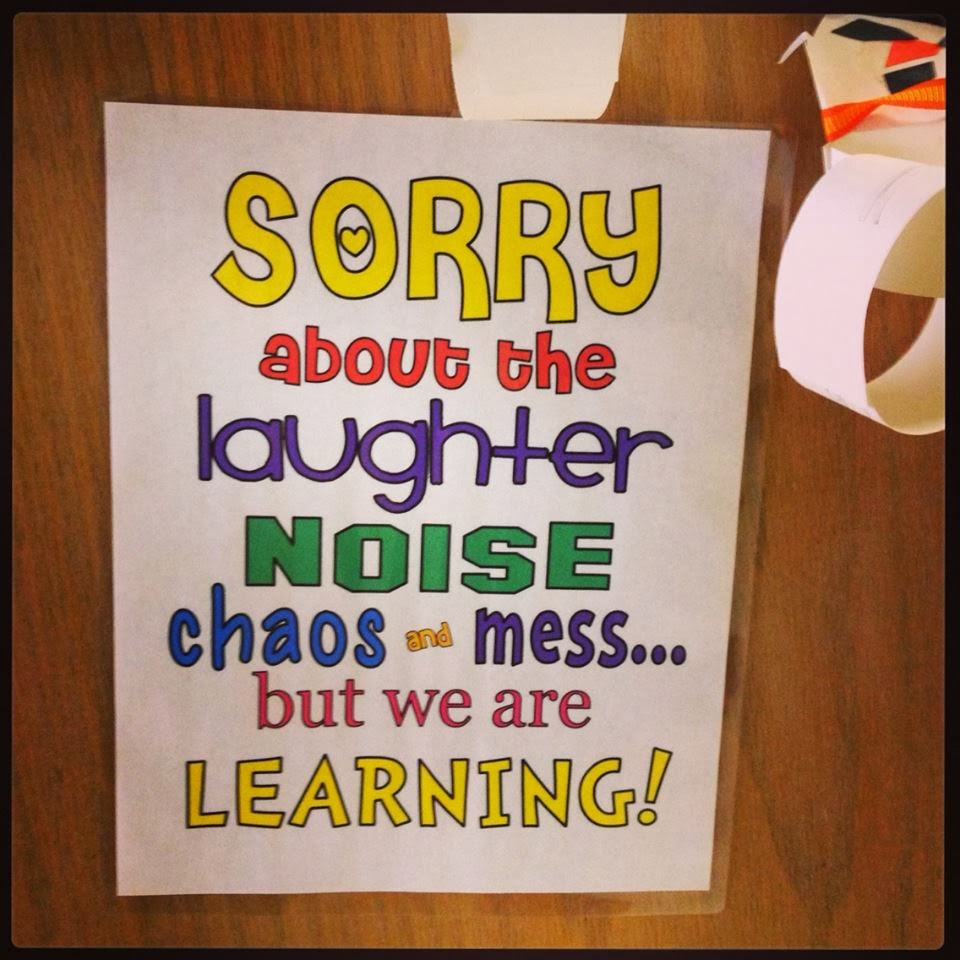
- 💻 Computers always improve learning outcomes
- 💻 Computers never improve learning outcomes
-
🤐🤫 Classrooms must be quiet at all times
- Did you know that the Australian Curriculum mentions collaboration in 85 different content descriptors?
- Well, good luck fostering collaboration if your class is completely silent.
-
🗣📢🔊 Classrooms must be loud at all times
- Your gut feeling will tell you that kids learn better when they're not bombarded with non-stop noise. Luckily, the research agrees with you!
- The research indicates that quiet places increase academic performance
- Also, too much noise is actually super-duper bad for you!
- 🤷 Smaller class sizes never make a difference
- Ask a teacher who's been in the game for more than a couple of days, and they can instantly call this myth out as a big pile of poo 💩
- "All else being equal, lowering class sizes will improve student outcomes." University of Colorado Boulder
- You can find some more great class-size myth-busting takedowns at the AARE blog
- 📈 Smaller class sizes always gives better results
- Some research shows that reducing class sizes doesn't do much by itself. John Hattie is pretty notable for popularising this.
"When used in isolation, the reduction of class sizes in Australian schools has little effect on student academic performance." Evidence for Learning
- Some research shows that reducing class sizes doesn't do much by itself. John Hattie is pretty notable for popularising this.
- 💭 The teacher's opinion is the most important
- 💭 The parent's opinion is the most important
- 💭 The student's opinion is the most important
- Teachers spend a quarter of their day with kids, are trained with university-level education on how little brains learn, and have spent thousands of hours (or more) planning and delivering lessons.
They obviously have a pretty good idea of what's going to be best for the student. - Parents have known their child for the child's entire life. They saw their child eat a chilli from the garden and learn from that experience pretty darn quickly. But they also hugged their child after a nasty fall from the epic monkey bars, and then facepalmed when the kid tried it again and cracked their shinbone in twain.
They obviously have a pretty good idea of what's going to be best for the student. - The student has been to countless lessons. They know which teachers make them fall asleep, and which ones will let them get away with it. They know which classes they look forward to, and they know how their gut instantly reacts to the words "test" or "early minute".
They obviously have a pretty good idea of what's going to be best for the student. - Moral of the story? Let's not pretend that the players are all on different teams.
- Teachers spend a quarter of their day with kids, are trained with university-level education on how little brains learn, and have spent thousands of hours (or more) planning and delivering lessons.
- 📚 Rote learning has no place in education in the 21st century
- 💻 All students are amazing at using computers
- Well, okay, maybe they're not amazing. But all students are somewhat decent at using computers, right?
- Kids are way better at computers than they used to be, obviously. But while some kids feel comfortable downloading an app to their iPad, many will fumble making a neat report in Microsoft Word, or organising their files, or backing things up.
- This is easy to see if you are an IT teacher, but anyone who knows a bit about computers and hangs around others will notice it too.
- Apple even bragged that kids are so dependent on tablets, that they don't even know what a computer is anymore!
- Students have individual learning styles
- This idea has been tackled by the mainstream media, by universities and by educational researchers
- 😠 Punishing students will always produce better results than rewarding them
- Rewards have been found to be better than punishment
- If you're into reading dense, lengthy PhD theses, then you can check one out by Michael Vincent Freedberg
In sum, the collective work here demonstrates a distinct effect of reward on incidental learning for both healthy younger and older adults [and] we found no evidence that punishments can improve incidental learning,
-
🥕 Rewarding students will always produce better results than punishing them
- Research published in Cognition indicates that punishment was up to three times more effective than rewards for students. If you're a pleb like me, and you don't want to pay the $74 to purchase this article, then you'll just have to settle with the bits and bobs that the Daily Mail have picked out for us.
-
🤔 Hang on, isn't this the exact opposite of the other research that we just saw? Gosh dang, I guess research must be pretty tricky.
-
Whelp, I guess that extreme generalisations about education are always wrong
- Effective learning must not be structured
- 🙅 Every child understands the instructions, but some just choose not to follow them
-
🌏 Australia is better at education than China.
- While there are many reasons why Australia is a wonderful country, we can't pretend that we are generally better at educating.
- For example, Chinese students do better in both mathematics and science.
- This data has been 🍒-picked, so take it with a grain of salt!
- Data and images from PISA 2015
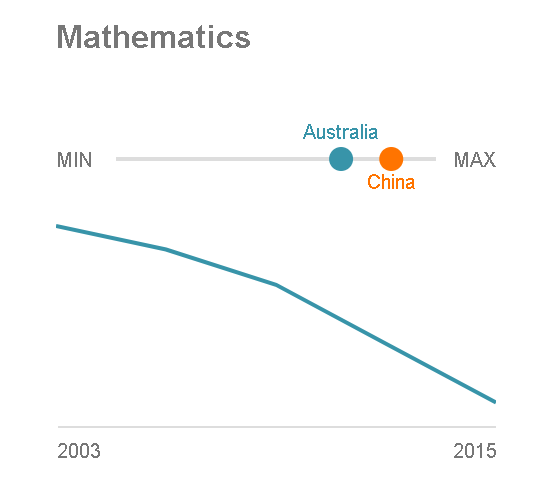
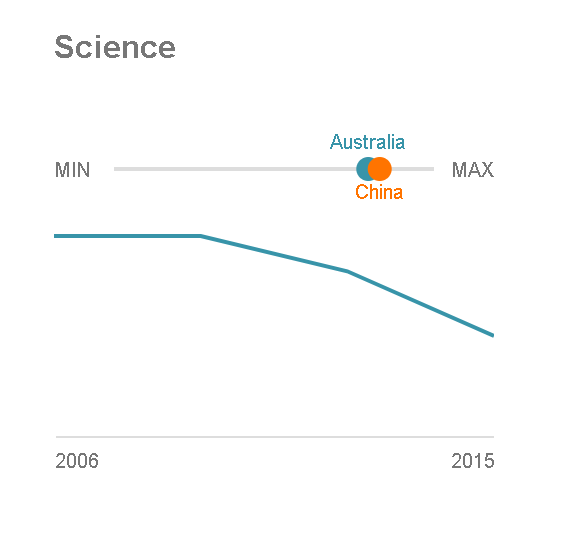
-
💪 Well, okay, maybe we don't do well in mathematics or science. But our kids are more resilient, right? And we do better in STEM, yeah? And our kids are SURELY better at all that 21st-century-learning, future-workforce stuff!
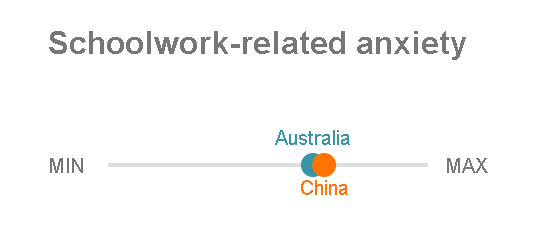

- Chinese students have significantly higher resilience than Aussie students, and pretty similar schoolwork anxiety.
- It's true that explicit STEM education in China is lacking, but that doesn't mean that they are doing "worse in STEM". In fact, they been kicking it out of the ballpark for decades.
- China does better than Australia at learning maths and science, so they've figured out the M and S in STEM.
- China has a greater scientific output than Australia1
- In a world that is increasingly dominated by automation (drones, AI, robots, and all that cool stuff), China actually has the best programmers in the world. This isn't just because they have more people -- this is the average programmer ability. Australia is barely a blip on the radar at number 19.
-
🙄 OKAY FINE, CHINA IS BETTER THAN AUSTRALIA JEEZ.
-
Obviously this is also untrue. China does not have Bunnings snags. 🌭
-
Also: Aussie kids do better in creative, problem-solving challenges, and it shows. Australia is objectively more equitable and fair. Poorer families are much better off in Australia. Australian teachers help kids feel like they belong. And isn't this the main mission of a teacher: to help kids flourish and support their wellbeing?
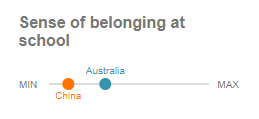
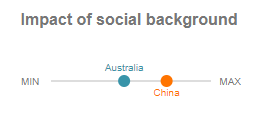
-
Do you agree or disagree with these falsehoods?
Have you seen these falsehoods out in the wild? Do your have your own myths to add?
I'd love to hear what you think through the Facebook post for this article
- Obviously China has lots of people, so we'd expect them to have a better scientific output than Australia ↩
 Try the free ClassGen digital gradebook
Try the free ClassGen digital gradebook